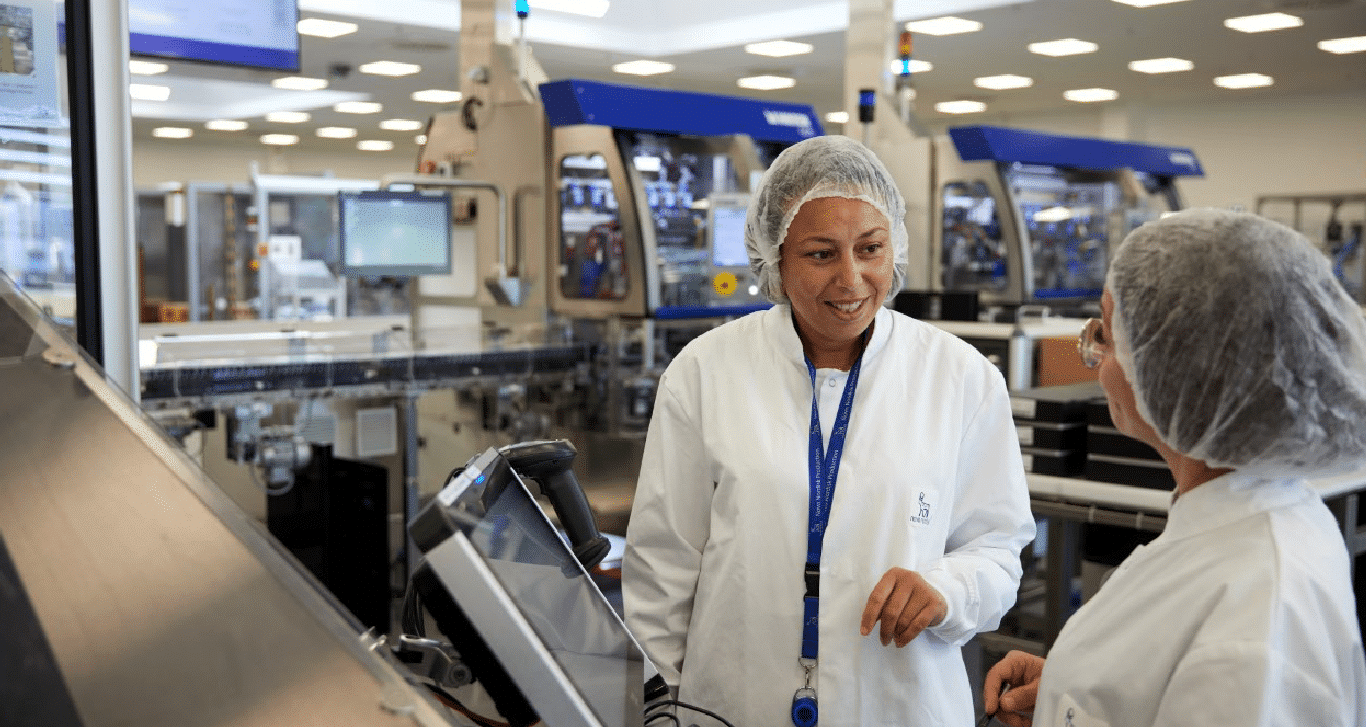There are currently 537 million diabetics around the world, this number will increase to 783 million by 2045, according to David Ester, Novo Nordisk Vice-President, in charge of the project to expand the Chartres plant. In response to this growing demand, the world leader in diabetes treatment decided to invest a further €130 million in its Chartres production site.
The most recent building, NNP4, which was delivered in 2020, is being extended by 7,850 m2, the work having started at the end of 2022. Four new FlexTouch® injection pen production lines will be set up (two assembly lines and two packaging lines) and are expected to be operational in 2025. New offices, meeting rooms and a large fitness room will also be built.
This factory, which was opened in 1961, exports 95% of its production to 85 countries and covers the daily needs of approximately 8 million diabetes patients in Europe and around the world … and those of several million additional people by 2025. Specializing in the production of cartridges and vials of insulin, as well as the assembly and packaging of pre-filled injection pens (insulin and GLP-1 analogs), it is the group’s second largest production site, after Denmark. With 1,450 employees in Chartres, the Danish group is the leading private employer in the Eure-et-Loir department.
Novo Nordisk has invested approximately €500 million in Chartres over the last 20 years. €50 million being injected in 2022, and approximately 200 new employees were recruited. In January 2023, Novo Nordisk announced an additional investment of €130 million and the recruitment of 100 to 150 new employees.
“After having decided to locate the production of certain products, in particular human insulin in vials, in our Chartres plant, we are now increasing the production capacities for the FlexTouch® injection pen. This goes hand in hand with a desire to host the production of future treatments, also delivered by the FlexTouch® injection pen,” Etienne TICHIT, Corporate Vice-President and General Manager of Novo Nordisk France.
In addition to increasing its insulin production capacity, the Chartres plant will also diversify its products. Indeed, in 2022, the factory started to package Ozempic®, a drug in the GLP-1 analogues class indicated for type 2 diabetes.
The Danish giant has also made sustainable development one of its priorities, as is clear in the design and expansion of the French plant. A biomass boiler installed in 2021 produces industrial steam for the processes and the heating of the buildings, which results in annual savings of 5,500 tonnes of CO2, i.e. the equivalent of the emissions produced by 4,110 cars driving non-stop. Two 400 kW heat pumps recover the calories produced and reinject them into the processes instead of discharging them. This results in an annual decrease of 3,050 MWh, i.e. the electricity consumed by over 1,300 people each year.
“Our strategy is based on three fundamentals, ‘the 3 Ps’ – Performance, People and Planet,” said the Corporate Vice-President and General Manager France. “Our aim in respect of performance includes internal R&D, industrial production and the marketing of our products. ‘People’ refers to our constant preoccupation not only with patients and healthcare professionals, but also our employees. With regard to the planet, we are committed to preserving natural resources and adhering to the plan formulated in conjunction by the Danish State and the major Danish industries, that is designed to reduce CO2 emissions in businesses, homes, administrations, and everywhere else, by 70% by 2045.”
While increasing production by 80% (filled insulin units), the French plant has reduced its water costs by 10% over the last 5 years, thanks to the good sense and involvement of its employees. In the Paris La Défense subsidiary, journeys by air and also by car have been cut in half. “Rethinking our production processes, is part of innovation (…) We count among the expert companies in the field of environmental plans, not only with regard to industrial sites but also subsidiaries,” Etienne Tichit said.
2023 marks the company’s 100th anniversary. With revenues of €23.7 billion, the Novo Nordisk group on its own manufactures one half of the world’s insulin production. Owned by a foundation, it specializes in the treatment of diabetes and other chronic conditions such as obesity, growth disorders and rare hemorrhagic pathologies (hemophilia, Glanzmann thrombasthenia). Novo Nordisk employs over 55,000 people in 80 countries and its healthcare solutions are available in 170 countries.



